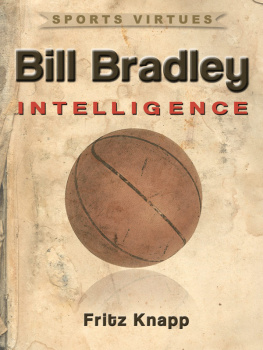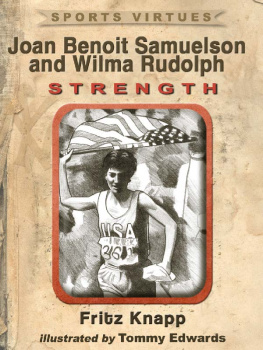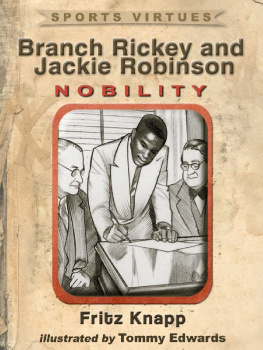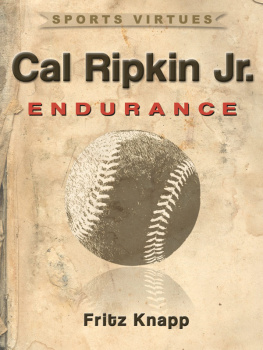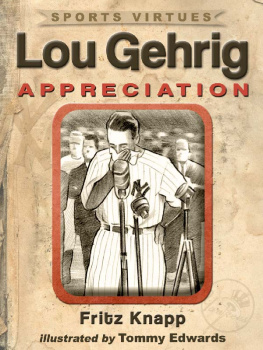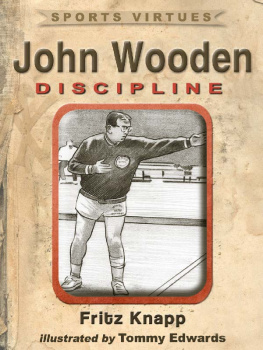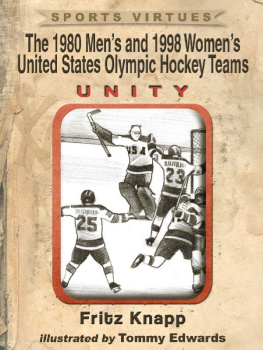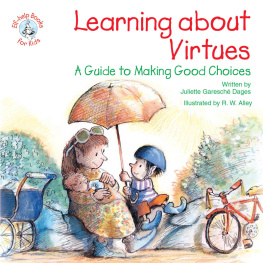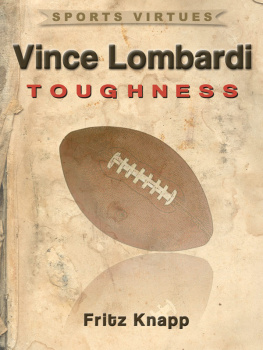Price World Publishing
www.PriceWorldPublishing.com
Scripture quotations are from the New Revised Standard Version Bible, copyright 1989 by the Division of Christian Education of the National Council of the Churches of Christ in the USA. Used by permission.
Copyright 2012 by Fritz Knapp
All rights reserved. Neither this book, nor any parts within it may be sold or reproduced in any form without permission.
eISBN: 9781619840553
Introduction
Life requires overcoming challenges and obstacles of many types. Battling our struggles and fears determines who we are. Defeating negative thoughts such as, I stink at this! or I have no friends! is the key to success at any age. Hope is what we need to remind us that such thoughts are always harmful. It is one of the most important words in any language. It means, Waiting patiently, expecting a positive outcome at some point in the future. In fact, hope is best gained after defeat and failure, because then inner strength and toughness is produced. I have discovered this to be true over and over again in my own lifes journey, first as a clueless middle school student in the early 1970s. The sheer number of students (over 1,200) overwhelmed me, and the diverse student body produced a sizable number of bullies (just writing the word makes me cringe).
It didnt take long for one of the toughest, most feared bullies, Jesse (as in Jesse James with his gang of western bank robbers) to target me, and to begin requesting my lunch money. Give me your money, punk, before I beat the poop out of you, hed say. Panic-stricken, I quickly handed over the money, and felt total relief when the brief, yet threatening, encounter had ended.
As a primary bully target, I went to great lengths to avoid Jesse, who was a grade ahead of me and well-schooled in the rough-and-tumble of the school hallways. Jesse easily found me in whatever nook or cranny I attempted to hide. I never tested his threats, mainly because his bark and body language were meaner than a hungry pit bulls. Fear determined my every movement in school for roughly half my 7th-grade year, but then I stumbled upon a cure for this painful feeling: sports.
Of all things that might have saved me (teachers, counselors, hall monitors, principals perhaps?), it was sports which gave me some respect with Jesse, enough so that he didnt bully me anymore.
It turned out Jesse was an athlete who played both football and basketball. So did I, though not as well as he did. He had game, while I had grit, at least just enough to hang with the better players (but not quite enough to say no to a bully). When we both showed-up for basketball try-outs, Jesse, who had literally ruined my life for months, turned from feared foe to fun-loving friend pretty quickly. I guessed I had earned some respect, hallway cred, and changed in his eyes from lunch money supplier to teammate.
From then on we spoke the simple language of sport, including what ups and high fives. Though we still had vast differences in upbringing and perspective, our common bond of sports gave us grounds for friendship. To say this was a pleasant surprise is putting it mildly. A sports-related alliance with one of the toughest bullies in school meant safety from all the others (boys and girls) in the bully fraternity.
Many of us face far greater challenges, however, ones that cant be easily overcome with sports: physical disabilities, depression, disease, family dysfunction, addictions, or death of a family member, just to name a few. This book, most of all, is meant to be a book of encouragement.
All of the athletes in this series faced hardships of one form or another, and most struggled with physical, mental, or emotional challenges. They are examples to me of what it means to stare eye to eye with fear and say, Take a hike! They inspire me whatever my state of mind might be, to do the same. Their best qualities went beyond their sports greatness, and we will remember them as heroic people, not just athletes.
Though there is no formula for rising above our failures, there is pattern that bears notice:
A) | Hard experiences early in life (teen age years or younger) forge mental, spiritual and emotional strength.....if you let them. Look positively on your future, no matter how bleak the present might seem! |
B) | Failure is a constant companion for all of us, but success is inevitable if we continue to pick ourselves up and dust ourselves off. Determine to succeed and you will! |
C) | Selfish ambition always lurks in dark corners of our lives. Its like rotten wood, good for nothing. Place others before yourself! |
D) | Defeat and public humiliation are not fatal, but certainly sting. Let such moments produce a humility that does not succumb to defeat but rises above it. Quietness and confidence are your strength during these times! |
E) | Look to encourage others through your personal disappointments. Let them know your challenges so that they can gain courage and hope. Hope will NEVER disappoint you! |
My hope is that this series will be a constant reminder of how athletes impact a far greater community than the one in which they live. Each book within the series highlights an athlete or coach whose life teaches us about how to rise above challenges, and a certain character trait that they portrayed and that you will find helpful in your life journey.
Your story is important, and the lessons youve learned will remain vital many years after you first learned them. They will be told for generations to come. Turn your challenges into triumphs, and let hope and peace rule your heart, mind, soul and spirit.
Intelligence
Displaying or characterized by quickness of understanding, sound thought, or good judgment.
Coaches teach the virtue of playing or competing smart, not just hard. Some players who are smart, compensate for what they may lack in physical abilities. Some players combine great talent with a strong mental capability to grasp all the important aspects of a sport, using the two gifts to their maximum benefit. The player who has intelligence can venture far in the real world outside of sports, often in business, law, medicine, politics or education. Bill Bradley is one such example.
Bill Bradley, former professional basketball player with the 1970 NBA Champion New York Knickerbockers, did well after his athletic career, becoming a United States Senator from New Jersey, running for President of the United States, and furthering causes such as civil rights and economic opportunities for all Americans. Never boastful about how great an athlete he was, Bradley used his career in sports to help do as much as he possibly could for other people, both those he served in New Jersey as well as many across the country.
Bill Bradley was born July 28th, 1943 in Crystal City, Missouri, 36 miles south of St. Louis on the banks of the Mississippi River. He is the only child of Warren and Susan Bradley, a community bank president and retired school teacher turned community activist. His father began in banking as a telegraph translator and worked his way up the corporate ladder until he had controlling interest in Crystal City State Bank.
Warren Bradley, besides being a highly trusted man in Crystal City, helping the community through the Great Depression (he took great pride in the fact that not a single one of his customers lost their homes), had much to offer his growing son in the way he faced personal struggles, since he faced the pain of crippling arthritis every day of his life.
Next page
